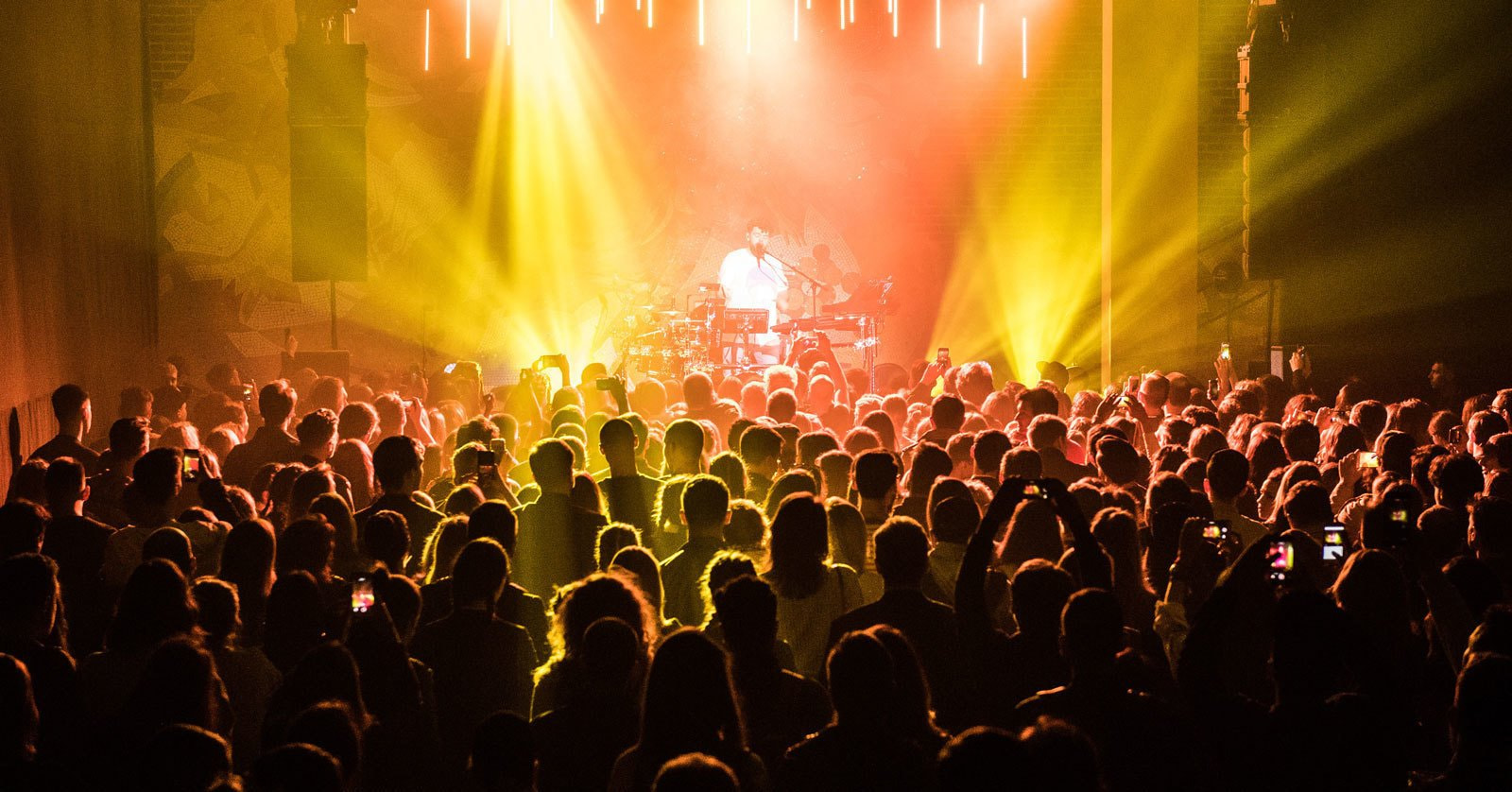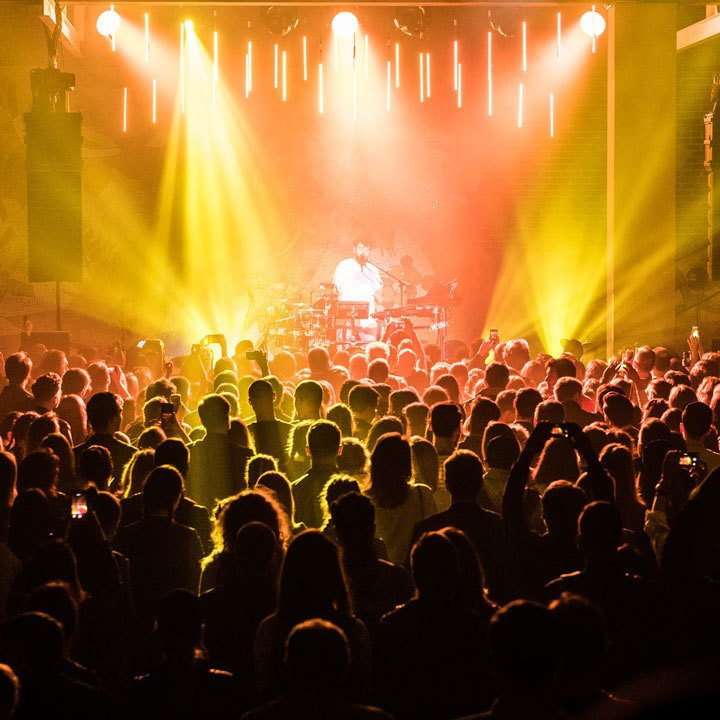On May 23, the season will open with a concert by London-based singer by London-based singer, songwriter and producer Sampha. As one of the UK’s most enigmatic young artists, Sampha has spent years generously dividing his time between solo and collaborative work, lending his talents to a whole range of standout releases; from homegrown UK contemporaries such as SBTRKT, FKA twigs, Lil Silva and Jessie Ware to world-renowned superstars like Drake, Beyonce, Kanye West, Solange and Frank Ocean.
In February 2017, it was time for Sampha to tell his own story with the release of his debut album Process. The album—an achingly beautiful, emotionally raw and musically adventurous body of work—is the culmination of years of work and was one of the year’s most acclaimed albums, culminating in Sampha winning the prestigious Mercury Music Prize. Sampha’s live performances are equally emotive, leading to sold-out shows around the world that have been met with widespread acclaim.
On June 13, Garage will host the first Russian concert by Ibeyi. In Yoruba language, "ibeyi" is the word for twins and that sixth sense that allows twins to synchronize in their thoughts, feelings, and actions. Although they are only distantly related to Yoruba people (the twins Lisa-Kaindé and Naomi Diaz were born in Paris to Cuban percussionist Miguel Díaz, who played with Buena Vista Social Club, and a singer of Franco-Venezuelan descent), they grew up with Yoruba songs they heard from their mother. Yoruba intonations, which might sound unfamiliar to a European ear, and "the calling of the blood" have had a great influence on the twins’ musical career.
However, African tradition is only one element of Ibeyi's music, which brings together the roots and the digital, the ancient and the new, the national and the global. Their two albums, produced by the owner of XL Recordings Richard Russell, feature a slow hip-hop beat, Latin American percussion, Spanish rap, a bebop saxophone, quotes from Frida Kahlo’s diary, and a fragment of a feminist speech by Michelle Obama. But whatever subject they turn two, the twenty-three-year-old duo seem to dedicate every song to the same idea: all racial and gender borders are artificial, and in fact we can all synchronize in our thoughts and feelings, just like twins. On June 12, the band will perform at New Holland Island in Saint Petersburg.
The third event in the program is a concert by Leon Bridges on July 9. The singer-songwriter from Texas is not yet thirty, but his debut album Coming Home will take you back to the American sixties. With vintage melodies, a laid-back rhythm, soulful brass, a dusty pipe organ, and doo-wop backing vocals, his light voice brings to mind some of the greatest R&B and soul singers of the past, such as Sam Cooke and Otis Redding.
Curiously, Bridges claims that at the time he started his musical career he knew nothing of Cooke and Redding. A shy Detroit kid, he grew up on the radio pop of the nineties and was only intuitively drawn to the retro style, which now shows itself even in his high-waisted trousers and fifties-style boots. Although the geography of his songs will seem familiar to any black music connoisseur, Louisiana, New Orleans, and Mississippi are as related to his personal and family history as they are to the history of a large part of the nation. On July 8, Leon Bridges will perform at New Holland Island.
On July 18, Japanese minimalist electronic composer and visual artist Ryoji Ikeda will present his latest audiovisual set, supercodex [live set], previously played at the Metropolitan Museum of Art in New York and Centre Pompidou in Paris. Released as an album through the German avant-garde label Raster-Noton, the CD supercodex (2013) can be found at codex | edition.
Ryoji Ikeda works with sound and light. His minimalist yet monumental performances are derived from his expertise in mathematics and information technology. They comprise the public processing of big data, which is transformed into an impressive, hypnotizing mass of sound and black-and-white imagery. Starting with quiet ambient sounds, Ikeda gradually builds up the volume, speed, and diversity of the soundwave, subtly drifting from noise and glitch to ascetic dance beats and back, while turning sound into data, formulae, and sine waves. Overloading human eyesight and hearing with data, the he creates a working model of the digital world and our potential future, where every object, physical phenomenon, and even human personality can be presented as a cуclopean database which, in turn, can be recoded into sound and then played.
supercodex [live set] accompanies the opening of code-verse a new audio-visual installation by Ryoji Ikeda, created in collaboration with Centre Pompidou, Paris. The installation is the third part of the IAM project (June 2–August 26).
On August 20, the season will close with a concert by Sevdaliza. Born Sevda Alizadeh in Tehran, Sevdaliza has lived in the Netherlands since she was five and has even played for the national basketball team. However, her vibrant experimental electronic art pop is rooted in Iranian culture. Closed to Europeans since the Islamic Revolution, the culture of Iran supplies themes and stories that feed Sevdaliza’s creative output.
Her musical career began in 2014, and after she released her debut album on her own label in 2017, Sevdaliza become a favourite of the leading music journals, being compared to Björk. Approaching her performances and recordings as complete multimedia projects, she creates an image of a cyber Scheherezade—a seductive odalisque who tells true stories of modern life, the role of women in contemporary society, and casual Islamophobia to a hypnotic digital beat.

